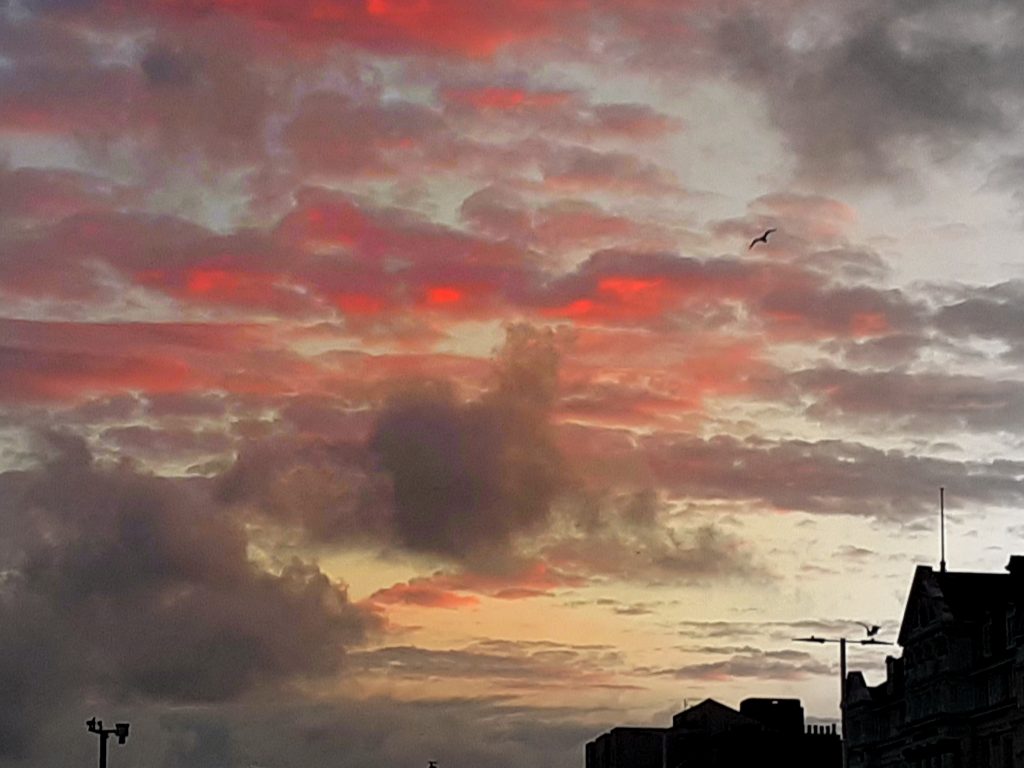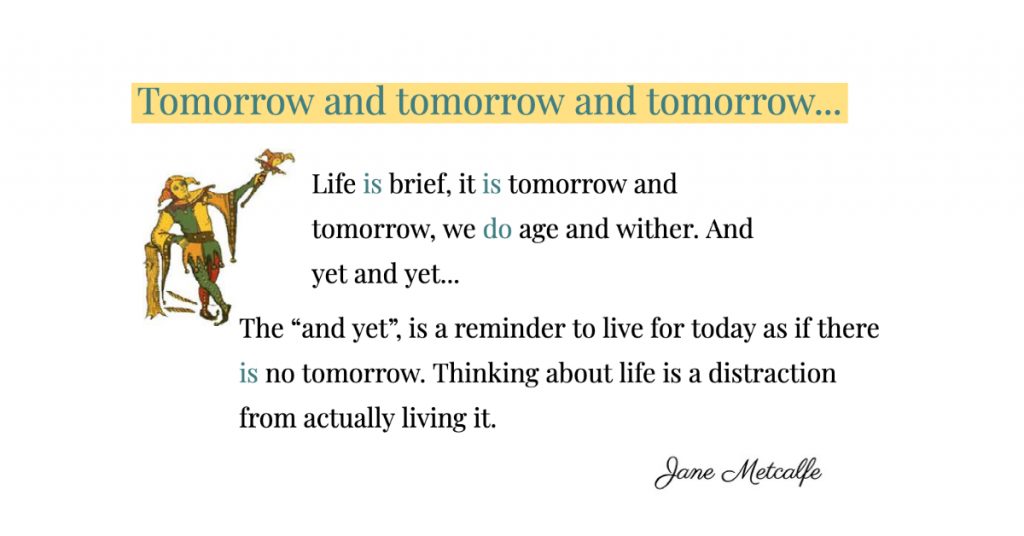All sense of what we call normal, as in habitual, is fast disappearing. On social media platforms people from every nook of the world share their views and feelings, pontifications, rants and fears, alongside a constant flurry of videos offering help and guidance, ranging from spiritual, to meditation methods, Ascension (aka moving from third to fifth dimension) to planetary disruptions (astrology), plus a Heinz variety of what the pandemic is or isn’t. The earth has cracked open like a walnut, revealing the mechanisms of a vast unfathomable brain at war with itself. The divide is becoming bigger by the day. Look down through the crack and the chasm is as bottomless as deepest space. Is this the end of the world as we have come to know it?
We hold Earth in our hands. We have diced with it and thrown it up in the air again and again… Where will the pieces land and what numbers will we get this time? Do we advance, step back, win, lose? In truth, hasn’t it been like this from the first syllable of recorded time? In essence Life is a game of chance, an adventure, a struggle, a road trip that each of us has taken from the dawning of individuation to the climax of now. We stand at the crossroads asking the question of ourselves: Where do we go from here? What’s next?
have diced with it and thrown it up in the air again and again… Where will the pieces land and what numbers will we get this time? Do we advance, step back, win, lose? In truth, hasn’t it been like this from the first syllable of recorded time? In essence Life is a game of chance, an adventure, a struggle, a road trip that each of us has taken from the dawning of individuation to the climax of now. We stand at the crossroads asking the question of ourselves: Where do we go from here? What’s next?
My thoughts make a coded rhythm on the keyboard and, as if by magic, appear on the screen in front of me; thoughts from a mind whose own sense of perspective has become scrambled. Not that I see this as a bad thing.  It’s a process that is a part of being human. As I look into the chasm of our broken world, the phrase, “the darkest hour is just before dawn”, springs to mind. New beginnings start when the old expires. It is hard to see because we are so busy fumbling about in the dark for something known to make us feel safe. But is it possible to let go of all past ideas and just be present to the unknown? In the fields of spirituality, meditation, mindfulness, presence, whatever the practice, aren’t we invited to live in the ubiquitous “now”? But how many of us really do that? We have a concept of the now as something solid, something known. But it isn’t. Now is full of unknown potential and what’s next is yet to be born.
It’s a process that is a part of being human. As I look into the chasm of our broken world, the phrase, “the darkest hour is just before dawn”, springs to mind. New beginnings start when the old expires. It is hard to see because we are so busy fumbling about in the dark for something known to make us feel safe. But is it possible to let go of all past ideas and just be present to the unknown? In the fields of spirituality, meditation, mindfulness, presence, whatever the practice, aren’t we invited to live in the ubiquitous “now”? But how many of us really do that? We have a concept of the now as something solid, something known. But it isn’t. Now is full of unknown potential and what’s next is yet to be born.
Amidst the doubt and uncertainty, the breaking down of the old, is it possible to let go of our fears of change? Whatever we have been asked to do by governing bodies, we can still, as individuals, be present to or own being, the world that is inside us and not “out there”.  If we invite harmony and rest into ourselves, however disorderly external events appear, we may have a chance of finding a sense of peace in our own personal now. And then, even though we may not be able to physically hold somebody else’s hand, we can join together in a sense of communality that is freely available in every moment above the battlefield of the story. The future is as much a foreign country as the past.
If we invite harmony and rest into ourselves, however disorderly external events appear, we may have a chance of finding a sense of peace in our own personal now. And then, even though we may not be able to physically hold somebody else’s hand, we can join together in a sense of communality that is freely available in every moment above the battlefield of the story. The future is as much a foreign country as the past.


 At some point growing up I was struck by the story in the Bible of the blind man healed by Jesus, whose first words were “I see men as walking trees.” In some ways we are like trees. If you half close your eyes and watch people moving you get a sense of what the newly-healed man saw in the first haze of sight. After all we have a trunk and our limbs are branches of a sort. When I stand facing a tree and focus my attention into the ground, I can sense the roots beneath my feet; if I raise my arms I am one with the rising growth of branches. In the Taoist practices of tai chi and qi gong you are asked to observe both the earth and the heavens; to feel the downward and the upward energy as you move through space, maintaining contact with both. That is a diluted description of that which takes time and practice to become second nature. We are far too much in our heads, ignoring, or blocking out the many energetic expressions of earth and sky. Words drive our existence when the swirling energy of the eternal now is constantly inviting us to dance. Words have their place – which I acknowledge as I use them like a palette of oil colours, in order to convey a sense of my walk this morning.
At some point growing up I was struck by the story in the Bible of the blind man healed by Jesus, whose first words were “I see men as walking trees.” In some ways we are like trees. If you half close your eyes and watch people moving you get a sense of what the newly-healed man saw in the first haze of sight. After all we have a trunk and our limbs are branches of a sort. When I stand facing a tree and focus my attention into the ground, I can sense the roots beneath my feet; if I raise my arms I am one with the rising growth of branches. In the Taoist practices of tai chi and qi gong you are asked to observe both the earth and the heavens; to feel the downward and the upward energy as you move through space, maintaining contact with both. That is a diluted description of that which takes time and practice to become second nature. We are far too much in our heads, ignoring, or blocking out the many energetic expressions of earth and sky. Words drive our existence when the swirling energy of the eternal now is constantly inviting us to dance. Words have their place – which I acknowledge as I use them like a palette of oil colours, in order to convey a sense of my walk this morning. Winter, and the scene in St Leonards Gardens is a timeless picture; a 19th century Masterpiece that has barely changed amidst all the modernisation of the current age. It was landscaped by architect James Burton in the early part of the 19th century. He turned a village backwater into what became known as ‘a conceited Italian town’. Far from that now in much of St Leonards, but in the Burton St Leonards area of which I write, the houses and trees, the glimpses of sea from the gentle slopes that rise to upper St Leonards, remain, I suspect, much as it was when it was first created. I walk most days along the unexpected footpaths further up the hill that never fail to deliver little wonders of nature; such as fallen branches that snap easily after days of lying around and pop into my carrier bag as kindling treasure for my fire. Another gift of trees, that their death may still provide warmth to others.
Winter, and the scene in St Leonards Gardens is a timeless picture; a 19th century Masterpiece that has barely changed amidst all the modernisation of the current age. It was landscaped by architect James Burton in the early part of the 19th century. He turned a village backwater into what became known as ‘a conceited Italian town’. Far from that now in much of St Leonards, but in the Burton St Leonards area of which I write, the houses and trees, the glimpses of sea from the gentle slopes that rise to upper St Leonards, remain, I suspect, much as it was when it was first created. I walk most days along the unexpected footpaths further up the hill that never fail to deliver little wonders of nature; such as fallen branches that snap easily after days of lying around and pop into my carrier bag as kindling treasure for my fire. Another gift of trees, that their death may still provide warmth to others. But now it is winter and just past the shortest day, the sun glassy bright. like a waning star, scrambles half up the sky, making a song and dance at bedtime, splashing the clouds with fiery red, like a child’s weary tantrum..
But now it is winter and just past the shortest day, the sun glassy bright. like a waning star, scrambles half up the sky, making a song and dance at bedtime, splashing the clouds with fiery red, like a child’s weary tantrum..
 I was known for “sleepwalking” in the dorm with my sheet wrapped round me, spouting Lady Macbeth’s famous speech: Out damned spot; out I say! The melodrama of it appealed to me more than the cerebral side of things. I was never destined to be an academic.
I was known for “sleepwalking” in the dorm with my sheet wrapped round me, spouting Lady Macbeth’s famous speech: Out damned spot; out I say! The melodrama of it appealed to me more than the cerebral side of things. I was never destined to be an academic. Is that what I have to look forward to: Sans teeth, sans eyes, sans taste, sans everything? Both speeches share cynicism, truth and wisdom in equal portions, depending on which way you look at them.
Is that what I have to look forward to: Sans teeth, sans eyes, sans taste, sans everything? Both speeches share cynicism, truth and wisdom in equal portions, depending on which way you look at them. A great while ago the world begun,
A great while ago the world begun,